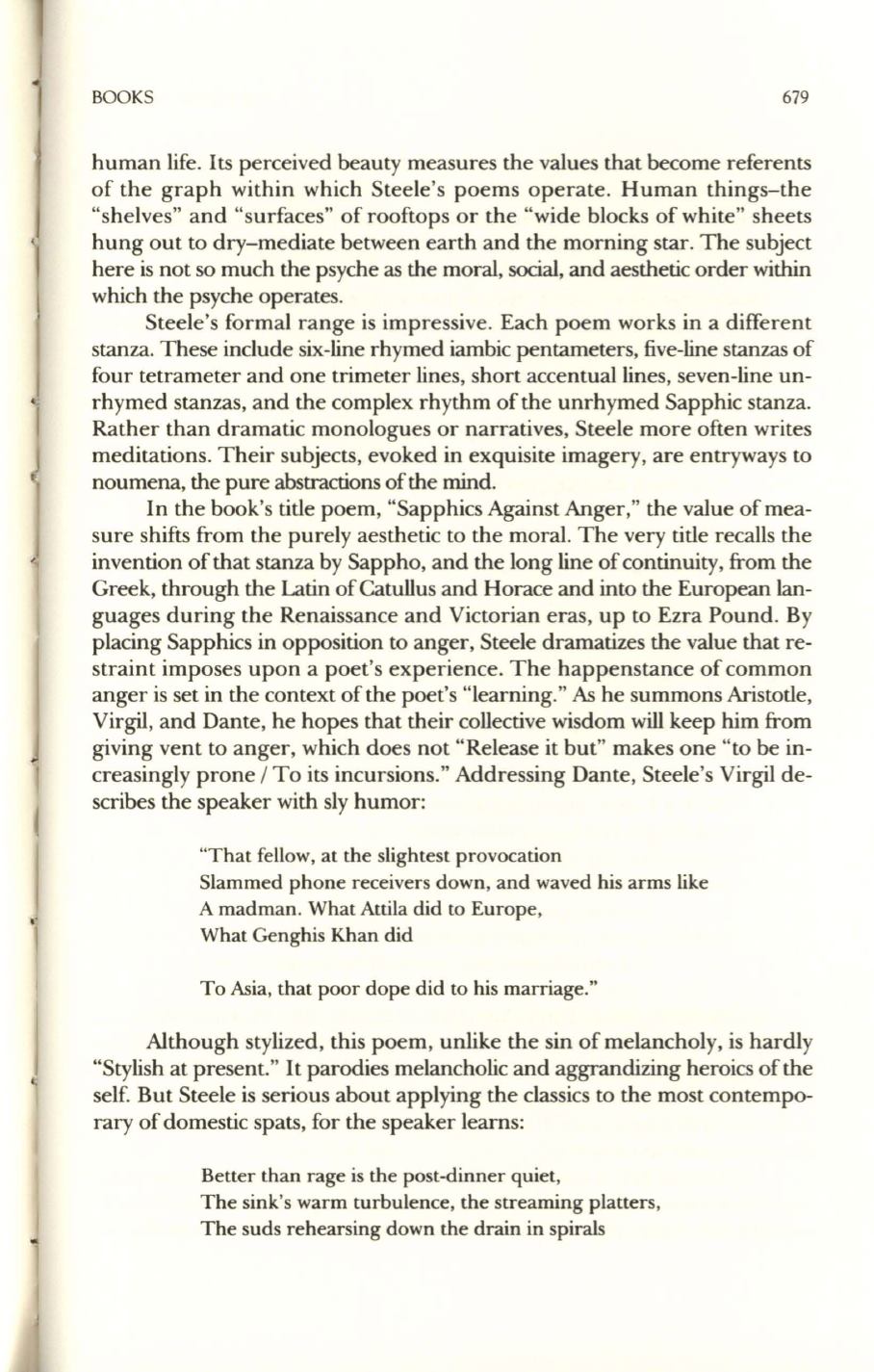
•
"
BOOKS
679
human life. Its perceived beauty measures the values that become referents
of the graph within which Steele's poems operate. Human things-the
"shelves" and "surfaces" of rooftops or the "wide blocks of white" sheets
hung out to dry-mediate between earth and the morning star. The subject
here is not so much the psyche as the moral, social, and aesthetic order within
which the psyche operates.
Steele's formal range is impressive. Each poem works in a different
stanza. These include six-line rhymed iambic pentameters, five-line stanzas of
four tetrameter and one trimeter lines, short accentual lines, seven-line un–
rhymed stanzas, and the complex rhythm of the unrhymed Sapphic stanza.
Rather than dramatic monologues or narratives, Steele more often writes
meditations. Their subjects, evoked in exquisite imagery, are entryways to
noumena, the pure abstractions of the mind.
In the book's title poem, "Sapphics Against Anger," the value of mea–
sure shifts from the purely aesthetic to the moral. The very title recalls the
invention of that stanza by Sappho, and the long line of continuity, from the
Greek, through the Latin ofCatullus and Horace and into the European lan–
guages during the Renaissance and Victorian eras, up to Ezra Pound. By
placing Sapphics in opposition to anger, Steele dramatizes the value that re–
straint imposes upon a poet's experience. The happenstance of common
anger is set in the context of the poet's "learning."
As
he summons Aristotle,
Virgil, and Dante, he hopes that their collective wisdom will keep him from
giving vent to anger, which does not "Release it but" makes one "to be in–
creasingly prone / To its incursions." Addressing Dante, Steele's Virgil de–
scribes the speaker with sly humor:
''That fellow, at the slightest provocation
Slammed phone receivers down, and waved his arms like
A madman. What Attila did to Europe,
What Genghis Khan did
To Asia, that poor dope did to his marriage."
Although stylized, this poem, unlike the sin of melancholy, is hardly
"Stylish at present." It parodies melancholic and aggrandizing heroics of the
self. But Steele is serious about applying the classics to the most contempo–
rary of domestic spats, for the speaker learns:
Better than rage is the post-dinner quiet,
The sink's warm turbulence, the streaming platters,
The suds rehearsing down the drain in spirals


